For nearly a hundred years, the American Federation of Teachers (AFT) and the National Education Association (NEA) – the two largest teachers’ unions in the United States – have cozied up to corporate foundations, such as the Rockefeller philanthropies and the Bill and Melinda Gates Foundation, along with multinational technology companies, including IBM and Microsoft. After almost a century of cutting side deals with Robber Barons and Tech Barons alike, the AFT and the NEA are now parroting the Gates Foundation’s “Reimagine Education” campaign, which is being buoyed by the World Economic Forum (WEF) and the United Nations Educational, Scientific, and Cultural Organization (UNESCO). Altogether, the AFT, the NEA, the WEF, and UNESCO are all “reimagining” a new post-human education system as they simultaneously push for ed-tech overhauls. As documented in my investigative series, “Teachnocracy,” these overhauls seek to privatize public schools through partnerships with Big Tech corporations that facilitate online “distance learning” to accommodate indefinite classroom health restrictions in a post-COVID world.
In fact, the AFT and the NEA are tethered to the WEF and UNESCO through an entity known as Education International (EI). EI is a Global Union Federation (GUF) that combines “383 member organisations,” including the AFT and the NEA, and collaborates with the WEF and UNESCO. As the intermediary between America’s teachers’ unions and the WEF and UNESCO, EI has been galvanizing the AFT and the NEA into conformity with the “reimagine” ed-tech agendas of these global governance institutions. To put it bluntly, EI puppeteers the AFT and the NEA using marionette strings that are tied to the WEF and UNESCO. In turn, the AFT and the NEA, along with the other 381 member organizations belonging to EI, are being spurred to “reimagine” schools through corporate ed-tech innovations geared towards advancing the Fourth Industrial Revolution (4IR) that is being accelerated by the WEF and the United Nations (UN) through the policy agendas collectively known as the “Great Reset.”
By consolidating nearly all of the world’s teachers’ unions under a single GUF, EI has been corralling educators across the planet into a uniform global workforce that marches in lockstep with the corporate ed-tech initiatives of internationalist oligarchs at the WEF and UNESCO. Rather than representing the grassroots concerns of local teachers at the international bargaining tables of the WEF and UNESCO, EI has been co-opting unionized educators, including AFT and NEA members, by signing them on to the “Reimagine” and “Reset” campaigns of the WEF and the UN in order to build the ed-tech data-mining infrastructure necessary to globalize the post-human Social Credit economy that underpins the Fourth Industrial Revolution.
How Technocrats Formed EI to Globalize Ed-Tech
In 1946, two years after the Bretton Woods agreement set up the World Bank and the International Monetary Fund (IMF) to finance a new global economy, the World Federation of Education Associations (WFEA), which was founded in 1923, rebranded itself as the World Organization of Teaching Professions (WOTP). Then, in 1951, the WOTP banded together with several other unions to form the World Confederation of Organizations of Teaching Professions (WCOTP). That same year, the International Federation of Free Teachers’ Unions (IFFTU) was established.
Fast-forward to 1993, and the WCOTP, which was chartered as a union of professional associations, and the IFFTU, which was chartered as a union of trade organizations, merged to form Education International, which now “represent[s] more than 32 million teachers and education support personnel in 178 countries and territories.”
When EI was inaugurated, the President of the WCOTP was Mary Futrell, who was simultaneously the President of the NEA, which is organized as a union of professional associations like the WCOTP. At the same time when EI was founded, the President of the IFFTU was Albert Shanker, who was simultaneously the President of the AFT, which is instituted as a union of trade organizations like the IFFTU. Upon dissolving the WCOTP and the IFFTU, both Futrell and Shanker became the founding Co-Presidents of EI. By converting the WCOTP and the IFFTU into the singular EI under the leadership of the NEA and AFT presidents, Futrell and Shanker amalgamated America’s two largest teachers’ unions with the world’s two largest international teachers’ unions, thereby homogenizing professional teachers’ associations and school trade organizations under a global bureaucracy bent on technocratically planning the world economy for what is now known as the Fourth Industrial Revolution.
Futrell and Shanker were perfect for the task of stirring up America’s teachers and school workers into an international brigade of workforce developers commissioned to train students for the hi-tech jobs of the future Fourth Industrial Revolution:
- Shanker was a Trilateral Commission member who collaborated with unnamed “bankers” and “the head of IBM” to set up the global-technocratic school reforms posited by Zbigniew Brzezinski in his 1970 Between Two Ages: America’s Role in the Technetronic Era. In this futurist tome, Brzezinski, who co-founded the Trilateral Commission with David Rockefeller, postulated that the “technetronic era” of schooling would “scientifically” manage student learning through a computerized system of “home-based education through television consoles and other electronic devices” deployed by “business companies” for the purposes of “work-study” job training in the coming Fourth Industrial Revolution. Brzezinski’s vision of workforce homeschooling managed by ed-tech companies was carried out by Shanker, who spearheaded the public-private charter schooling industry, which evolved into virtual charter school corporations that train students for workforce competence through adaptive-learning courseware programmed with cognitive-behavioral conditioning algorithms.
- Futrell has served as the Co-Director of the Center for Curriculum, Standards, and Technology (CCST), and she has also sat on the Board of Directors of the International Council on Education for Teaching (ICET) as well as the Board of Directors of K12 Inc. The latter company, K12 Inc., is the international virtual charter school company that was set up by US Secretary of Education, William Bennett, after he took over Project BEST (Basic Education Skills through Technology), which was America’s domestic version of UNESCO’s “Study 11.” Futrell was also a Member of the US National Commission for UNESCO, and she was also appointed as the President of Americans for UNESCO.
Thanks to Shanker kicking off the public-private charter school industry for workforce training; and thanks to Futrell directing K12 Inc.’s virtual charter school business in accordance with the ed-tech standards of the CCST and the ICET; these presidents of the AFT, the IFFTU, the NEA, and the WCOTP were instrumental in advancing the proliferation of ed-tech through Project BEST and UNESCO Study 11. Less than a decade after BEST and Study 11 laid the “information technology” (IT) infrastructure for the Fourth Industrial Revolution, Shanker and Futrell consolidated their unionized constituents under the banner of EI in order to galvanize all AFT and NEA teachers into a single herd that can be cattle-driven to follow the globalist directives of multinational corporations in bed with world governance institutions, such as UNESCO and the World Economic Forum.
AFT President Shanker and NEA President Futrell are no longer members of EI. Nevertheless, Education International continues to honor these founding EI presidents by issuing awards and scholarships in their honor: the Albert Shanker Education Award and the Mary Hatwood Futrell Scholarship Fund. Meanwhile, the current President of the AFT, Randi Weingarten, is a current Board Member of EI; Lily Eskelsen Garcia, who was the President of the NEA until September 2020, is the current Vice President of EI; and David Edwards, who was an Associate Director at the NEA, is the current General Secretary of EI. With AFT and NEA officials continuing to hold high office at Education International since the GUF’s inception, the American Federation of Teachers and the National Education Association have been tethering all of the USA’s teachers’ unions to the globalist policies of EI.

Now, with nearly all the world’s unionized teachers bundled under the GUF monolith of Education International, the WEF and UNESCO are bolstering the Fourth Industrial Reset with the help of EI technocrats, including Robert Harris, Susan Hopgood, Fred Van Leeuwen, and Jelmer Evers, who all collaborate with global governance institutions, including UNESCO and the World Economic Forum.
Robert Harris, Susan Hopgood, and UNESCO Globalize Ed-Tech for Social Credit Data-Mining
When Education International was established in 1993, Founding Presidents Shanker and Futrell were accompanied by an Australian educator, Robert Harris, who was also a Founding Member of EI. Prior to becoming a co-founder of EI, Harris was the Secretary-General of the WCOTP, where Futrell was president. Upon co-founding Education International, Harris “was elected as Executive Director for Intergovernmental Relations, charged with establishing EI’s role as the spokesperson for the world’s teachers and education employees.” Harris also served as EI’s Director of International Relations.
Currently, Harris is a member of the WEF, and he is also the Chair of the Working Group on Education, Training and Employment Policies of the Trade Union Advisory Committee of the Organization for Economic Cooperation and Development (OECD). Additionally, Harris has also served as the President of the United Nations’ Conference of Non-Governmental Organizations (NGOs) as well as the President of UNESCO’s Conference of NGOs. As an EI liaison to UNESCO, Harris set the stage for Education International’s partnership with UNESCO’s Global Education First Initiative (GEFI), which was steered by EI President Susan Hopgood to pave the way for the new UNESCO Global Education Coalition (GEC) with Big Tech corporations that are members of the WEF.
In 1995, approximately one decade after UNESCO Study 11 laid the groundwork for the IT and ed-tech infrastructure for the burgeoning Fourth Industrial Revolution, EI Executive Director Harris spoke at the International Conference on Education hosted by UNESCO’s International Bureau of Education (IBE). During this speech, Harris historicized how EI’s alliance with UNESCO builds on the 1966 partnership between UNESCO and the International Labor Organization (ILO), which called for “authorities and teachers [to] recognize the importance of the participation of teachers, through their [union] organizations . . . to improve the quality of the education service.” In alignment with this mission to globalize teachers’ unions under the prospects of the 1966 UNESCO-ILO partnership, the 1995 UNESCO-IBE International Conference on Education, which was facilitated by Harris, Futrell, and several other EI bureaucrats, called for the worldwide adoption of ed-tech, including “distance education technologies” that are presently being deployed by Big Tech corporations, such as Microsoft, Google, and IBM, in bed with UNESCO’s EI-endorsed GEC. It should be noted here that UNESCO’s GEC partners with both the WEF and the ILO, the latter of which is the first and oldest UN “specialized agency,” which stems from the League of Nations: the precursor to the United Nations.
Harris’s UNESCO-IBE speech was prefaced by the “Opening Address” from Pat Atkinson, who was the Minister of Education, Training, and Employment in Canada’s Province of Saskatchewan. In this “Opening Address” to the 1995 UNESCO-IBE conference, Atkinson professed that, “[i]n a world of rapidly changing technology and the global marketplace [sic], . . . [w]e must use appropriate technologies to create opportunities for learning. New technologies can become a magic wand for a small child.” Following these speeches from Atkinson and Harris, the UNESCO IBE laid out the official “Declaration of the 44th session of the International Conference on Education,” which proclaimed that schooling systems should be reformed “in conformity with the aims of the [UN’s] World Declaration on Education for All” by “improving curricula, the content of textbooks, and other educational materials, including new technologies.” In addition, this UNESCO-IBE conference also convened a “Roundtable” discussion during which the panelists emphasized the need “[t]o make better use of communication technologies for and by education (for example, distance education, educational television and radio).”
Fast-forward to the 21st century, from 2012 to 2016, Education International teamed up with UNESCO to drive UN Secretary-General Ban Ki-moon’s Global Education First Initiative with EI President Susan Hopgood seated on the GEFI Steering Committee. The UNESCO-GEFI project partnered with the World Bank and the Global Business Coalition for Education (GBC-E), which regiments the following multinational technology corporations on its roster of “Member Companies”: Microsoft, Hewlett Packard (HP), Intel, Dell, Lenovo, Accenture, Viacom, and Pearson. Four years after this GEFI/GBC-E partnership, spurred by COVID lockdowns, UNESCO launched its Global Education Coalition (GEC), which is endorsed by Education International along with EI’s satellite, the US National Education Association, in order to disseminate “distance learning” technologies from ed-tech companies, such as Khan Academy, Blackboard Inc., McGraw Hill, Technovation, Virtual Educa, EdTech Hub, and Sesame Workshop. UNESCO’s EI/NEA-sponsored GEC also includes Big Tech corporations, such as IBM, Google, Microsoft, Salesforce, Huawei, Verizon, Facebook, Zoom, and Qualcomm, all of which simultaneously partner with the WEF, where Robert Harris is a member.
In sum, for almost thirty years, with the help of Robert Harris and Susan Hopgood, UNESCO and EI have been collaborating to build the international ed-tech infrastructure, infrastructure that will be used to data-mine students’ psychometrics for Social Credit algorithms programmed for “human capital management” in the global “stakeholder” economy of the Fourth Industrial Revolution.
Fred Van Leeuwen, WEF, and UNESCO Push Post-Humanist Ed-Tech for the 4IR
Harris, as a Founding Member of Education International, was also a consultant to EI’s Founding General Secretary: a Dutch Academic named Fred Van Leeuwen, who was the General Secretary of the International Federation of Free Teachers’ Unions under President Shanker until the IFFTU merged with the WCOTP to form EI. Like Harris, Van Leeuwen, who is now Education International’s General Secretary Emeritus, has also been an EI liaison with both the World Economic Forum and UNESCO where he has collaborated with Big Tech corporations to “reimagine” workforce schooling for the global Social Credit economy of the post-humanist Fourth Industrial Revolution envisioned by the WEF’s boss, Klaus Schwab.
As the General Secretary of EI, Van Leeuwen was a member of the World Economic Forum’s Global Agenda Council on Education Systems in 2012. That same year, he attended the WEF’s Annual Meeting where he participated in an “interactive session” titled “The Education-Entrepreneurship-Employment Nexus.” At the same time, the WEF’s “Entrepreneurship initiative” was “support[ed]” by technology companies, including Microsoft, Intel, and Cisco. As corporate members of the World Economic Forum’s Global Agenda Council on Education Systems, Intel launched its “Easy Steps digital literacy programme” while Cisco Networking Academy launched programs to train students how to “succeed in a technology-driven world by teaching the skills needed to design, build, manage and secure computer networks – improving their career prospects while filling the global demand for networking professionals.” In brief, through the WEF’s Global Agenda Council on Education Systems, Van Leeuwen collaborated with Microsoft, Intel, and Cisco to expand global ed-tech systems for the purposes of “creating curricula to meet pressing needs” of the “future labour demands” of the coming Fourth Industrial Revolution.
The WEF’s Global Agenda Council on Education Systems has also pursued the “Education for All” mission of the United Nations Educational, Scientific, and Cultural Organization where Van Leeuwen, as a member of UNESCO’s Senior Experts’ Group, has called for “reimagining” school through post-humanist ed-tech programmed with artificial intelligence (AI) geared for “Social Score” data-mining of students’ psychometrics and biometrics. In a 2015 UNESCO whitepaper entitled “Rethinking Education: Toward a Global Common Good?,” Van Leeuwen and his comrades at the Senior Experts’ Group proclaimed that “[d]igital connectivity holds promise for gains in health, education, communication, leisure and well-being. Artificial intelligence advances, 3D printers, holographic recreation, instant transcription, voice-recognition and gesture-recognition software are only some examples of what is being tested. Digital technologies are reshaping human activity from daily life to international relations.” In a nutshell, Van Leeuwen and his UNESCO cadre hyped how humanity will be “reshap[ed]” through the post-humanist convergence of AI, virtual reality (VR), augmented reality (AR), and biometric ed-tech.
Today, through UNESCO’s new Global Education Coalition, which is currently promoted by EI, and the WEF’s Annual Meetings, which EI General Secretary Van Leeuwen has frequently attended, these worldwide ed-tech advances in cognitive-behavioral AI; holographic VR and AR; and socioemotional biometrics and psychometrics have been steadily accelerated by Education International in close cooperation with multinational technology corporations, such as Microsoft, Google, Facebook, Huawei, and McGraw Hill. In 2013, just two years before Van Leeuwen signed onto the UNESCO “Rethinking Education” whitepaper as the General Secretary of EI, he attended the WEF’s Annual Meeting along with delegates from UNESCO and representatives from these globalist tech companies that are now key players in UNESCO’s GEC:
- Microsoft: Bilderberger Bill Gates’s computer technology corporation, which traffics in ed-tech applications of its HoloLens AR/VR “mixed reality” goggles along with predictive AI “learning analytics” data-mined through its Azure cloud-computing programs that can track facial-recognition biometrics and emotion-recognition psychometrics.

- Google: Formerly run by Bilderberger Eric Schmidt, the Big Data corporation has been engineering “virtual reality” and “augmented reality” (AR) devices, including Google Glass and Google Cardboard headsets that can facilitate VR and AR learning.
- Facebook: Bilderberger Mark Zuckerberg’s social media corporation, which has been developing virtual reality systems, including VR-learning platforms, through the Oculus Quest headgear that is now being linked to the VR “Metaverse” under Facebook’s new parent company, “Meta.”

- Huawei: The Chinese Big Tech giant that powers AI ed-tech with biometric facial-recognition algorithms and psychometric emotion-recognition analytics programmed for calculating Social Scores in China’s techno-fascist Sesame Credit system, which is managed by the Alibaba corporation with funding from American companies, such as Blackrock and Salesforce.
- McGraw Hill: One of the “Big Three” educational textbook publishers, which also platforms cognitive-behavioral “adaptive learning” apps through AI courseware, including Connect and ALEKS (Assessment and Learning in Knowledge Spaces).
Other Big Tech corporations and ed-tech companies in attendance with Van Leeuwen at the 2013 WEF Meeting include Salesforce, Accenture, HP, Intel, Dell, Lenovo, Toshiba, Cisco, Mozilla, Yahoo! Inc., Adobe, and Cengage Learning.
From this cross section of multinational technology corporations in partnership with the WEF and UNESCO, it is evident that these Big Tech cartels have been globalizing AI, VR, AR, biometric, and psychometric ed-tech for Social Credit data-mining in coordination with the world governance directives of the United Nations and the World Economic Forum with the help of Education International under the leadership of EI General Secretary Fred Van Leeuwen.
To strategize the dissemination of these commercialized ed-tech products through public-private partnerships with corporate philanthropies, several tax-exempt foundations and non-profit organizations also attended the 2013 WEF Meeting, including the Rockefeller Foundation, the Gates Foundation, the Ford Foundation, the Carnegie Endowment for International Peace, the Atlantic Council, and the Wellcome Trust: a massive medical research “charity” that is connected to the Galton Institute, formerly known as the British Eugenics Society.
Similarly, to strategize the international funding of worldwide ed-tech proliferation, there were several Big Banks, financial services firms, and fiscal consulting agencies that likewise attended the 2013 WEF Meeting, including Goldman Sachs, Bain Capital, Bilderberger Peter Thiel’s Founders Fund, Soros Fund Management, Kissinger Associates, the Carlyle Group, Blackstone Group, Boston Consulting Group, McKinsey & Company, Lloyd’s, Prudential PLC, Visa, Mastercard, Citi Group, JP Morgan Chase, Bank of America, HSBC Bank, Rothschild GmbH, China Merchants Bank, Deutsche Bank, Bank of Moscow, the Central Bank of the Russian Federation, the Royal Bank of Scotland, the World Bank, the IMF, and the Bank for International Settlements.
Finally, to strategize the multilateral public-private cooperation between Big Banking houses, international financial institutions, globalist tax-exempt foundations, corporate non-profit organizations, multinational ed-tech companies, and Big Tech industries, there were also representatives from the world governance arms of UNESCO, the Council on Foreign Relations, Chatham House, and the OECD in attendance at the WEF’s 2013 Annual Meeting, along with EI General Secretary Van Leeuwen.
In the final equation, Van Leeuwen was in the position to relay the WEF’s techno-fascist global governance prospectus back to national teachers’ unions across the planet in order to get educators on board with public-private Big Tech partnerships that virtually condition students for workforce “competence” in the post-humanist Social Credit economy of the Fourth Industrial Revolution.
Klaus Schwab, Jelmer Evers: Teaching in the Transhumanist 4IR
Three years later, Van Leeuwen endorsed a 2018 book entitled Teaching in the Fourth Industrial Revolution: Standing at the Precipice [1]. Authored by several finalists of the Varkey Foundation’s Global Teacher Prize, including Jelmer Evers, who is an EI activist, this Routledge book is basically a call to action for the teaching profession to carry out WEF Chairman Klaus Schwab’s vision for a transhumanist ed-tech system.
To begin with, Teaching in the Fourth Industrial Revolution is sponsored by UNESCO and WEF affiliates, including:
- UNESCO Director-General Irina Bokova, who worked with current EI President Susan Hopgood on UNESCO’s Global Education First Initiative;
- Fernando M. Reimers, who is a member of UNESCO’s International Commission on the Futures of Education, which is “a global initiative to reimagine how knowledge and learning can shape the future of humanity” through transhumanist techno-evolution;
- Sunny Varkey, who became UNESCO’s Goodwill Ambassador for Education Partnerships in 2012 after he founded the Global Education Management Systems (GEMS), which has also partnered with the Clinton Global Initiative, Microsoft, UNESCO, and the World Economic Forum as a WEF Global Growth Company;
- Vikas Pota, who was named the WEF’s 2013 Young Global Leader for his role as CEO of the Varkey Foundation, which has partnered with the Clinton Global Initiative, the United Nations International Children’s Emergency Fund (UNICEF), UNESCO’s Business Backs Education campaign, UNESCO’s Global Education Skills Forum, and UNESCO’s new Global Education Coalition.
Throughout the chapters of Teaching in the Fourth Industrial Revolution, several WEF whitepapers are cited, including “Realizing Human Potential in the Fourth Industrial Revolution: An Agenda for Leaders to Shape the Future of Education, Gender, and Work”; “New Vision for Education: Unlocking the Potential of Technology”; and the World Economic Forum’s 2016 “Future of Jobs Report: The 10 Skills You Need to Thrive in the Fourth Industrial Revolution.”
To put the cherry on top, the “Foreword” for Teaching in the Fourth Industrial Revolution is authored by none other than Van Leeuwen’s WEF boss, transhumanist Klaus Schwab, who is the Founder and Executive Chairman of the World Economic Forum. In this Foreword, Schwab lays out his forecast for a futurist school system in which all human interactions between teachers and students are mediated through Big Data and AI ed-tech analytics:
“[i]nnovations in technology today make it possible to synthesize and analyse data to tailor pedagogy to individual student needs and provide feedback in real time; significantly reduce costs; allow students from drastically different parts of the world to collaborate on projects; and create platforms for sharing best practices. . . . Only a strategic integration of personal coaching and digital learning can provide both the technological and human-centered skills necessary to thrive in the Fourth Industrial Revolution.”
Emphasizing this “integration” of the “digital” and the “personal,” Schwab, whose family roots can be traced back to business connections which were critical to the functioning of the Nazi Reich, invokes the neo-eugenic rhetoric of transhumanism by proclaiming that “[t]he future of education content is thus neither wholly digital nor wholly human but a hybrid.” This trans-eugenic declaration echoes Schwab’s transhumanist profession in his 2016 book, The Fourth Industrial Revolution, which states that the “Fourth Industrial Revolution” will “evolve” humans into cyborgs by merging humankind with computers through “a fusion of technologies that is blurring the lines between the physical, digital, and biological spheres.” In 2019, at the Chicago Council on Global Affairs, Schwab reiterated this transhumanist pronouncement: “at the end, what the Fourth Industrial Revolution will lead to, is a fusion of our physical, our digital, and our biological identities.”
Schwab’s transhumanist vision of a bio-digital melding of humans with computers is mirrored multiple times in several chapters of Teaching in the Fourth Industrial Revolution. For example, citing Schwab in “Chapter 1: Education in a Time of Unprecedented Change,” co-author Michael Soskil echoes the WEF Chairman’s techno-hybrid “reimagining” of humanity in a section titled “The New World of Learning,” which examines Schwab’s formulation of the Fourth Industrial Revolution as Soskil asks the following question: “[a]s Artificial Intelligence (AI) and machine learning, the ‘Internet of Things [IoT],’ biotechnological advances, and nanotechnology turn the most imaginative science fiction into reality, we will be forced to continually reevaluate the question, ‘What does it mean to be human?’” In other words, as the human species “evolves” through a transhuman “fusion” of biotech and nanotech programmed with AI linked to the IoT, “the lines between the physical, digital, and biological spheres,” as Schwab anticipates, will be “blurred,” thus calling into question “[w]hat . . . it mean[s] to be human” as the distinctions between organic, natural life and industrially manufactured machinery are rendered into mere semantic differentiations.
Similarly, citing Schwab in the “Introduction” chapter of Teaching in the Fourth Industrial Revolution, EI member Jelmer Evers explores the WEF Chairman’s transhumanist predictions for “Implantable Technologies, Big Data, Artificial Intelligence (AI), Robotics, 3D-Printing, Neurotechnologies and Designer Beings.” It should be noted here that, in “Chapter 8: Flip the System,” co-author Evers, as a member of Education International, champions EI as a global vehicle for unionizing educators by “leverag[ing] new technologies” with “other stakeholders” in order to carry out the UNESCO-ILO “Recommendation Concerning the Status of Teachers,” which calls for “unions to play a crucial role in education policy.” In the “Acknowledgments” prelude, Evers “thank[s] [EI General Secretary] David Edwards and [EI General Secretary Emeritus] Fred van Leeuwen and all of my [Evers’s] colleagues at Education International and national unions who are an inspiration in their leadership and activism and who have opened up my [Evers’s] eyes in so many ways.” In sum, with support from EI’s former and current General Secretaries, Evers is calling for Education International to regiment teachers’ unions under the banner of UNESCO policies that drive the expansion of transhumanist ed-tech “upgrades” which are exalted by WEF Chairman Schwab.
To put it all together, Fred Van Leeuwen, who is EI’s General Secretary Emeritus, and Jelmer Evers, who is an activist member of EI, have been organizing unionized teachers in coordination with the public-private world governance stratagems of UNESCO, the WEF, and Big Tech. These efforts are aimed at micromanaging technocratic schooling in a transhumanist Fourth Industrial Revolution that is superintended by a Global Union Federation of educators bundled together under the umbrella of Education International. Of course, the transhumanist bent of EI’s UNESCO-WEF collaborations can be traced back to the eugenic histories of UNESCO and the World Economic Forum. Indeed, the first Director-General of UNESCO, Julian Huxley, coined the concept of transhumanism as the next phase of eugenics after he served as the President of the British Eugenics Society. Similarly, the World Economic Forum, which has advocated for Malthusian-eugenic population control since the WEF’s inception, was founded by transhumanist Klaus Schwab, whose family tree has roots connected to the eugenic regime of Adolph Hitler. (For a deep dive into the Schwab family’s Nazi-eugenic legacy, read Johnny Vedmore’s “Schwab Family Values”).
Don’t Give Me No GUF
Ever since the WCOTP and the IFFTU were amalgamated into a single GUF under EI in 1993, Education International has been led by globalist technocrats, including Robert Harris, Susan Hopgood, Fred Van Leeuwen, and Jelmer Evers, who all cavort with global governance institutions, such as UNESCO and the WEF. For almost thirty years now, EI Presidents, General Secretaries, and Executive Directors have been signing on to the ed-tech ordinances of UNESCO and the WEF in order to usher in a transhumanist “School World Order” for the Fourth Industrial Revolution. In turn, EI’s 383 “member organisations,” including the AFT and the NEA, have been adopting these UNESCO and WEF directives, thereby passing down these transhumanist ed-tech policies to Education International’s “32 million teachers and education support personnel in 178 countries and territories.” In brief, EI has been steadily corralling the world’s teachers and school employees into a technocentric global workforce that is being shepherded into the Fourth Industrial Revolution under the public-private marching orders of UNESCO, the WEF, and Big Tech. To be frank, it appears that EI, like all other GUFs, has always been commissioned to function as a labor-management arm of the world governance stakeholders of UNESCO, the WEF, and Big Tech.
So, if you’re waiting for EI or any other GUF to lead a worldwide general strike against transhumanist technocracy, don’t hold your breath. Labor movements and strikes must be organized by grassroots efforts from workers on the ground in their local communities. As long as EI or any other GUF globalizes organized labor through top-down efforts orchestrated by world governance institutions, the interests of teachers and workers will continue to be subordinated to the techno-imperialist interests of UNESCO and the WEF in bed with multinational corporations.
If unionized educators and school employees who belong to EI cannot sway their GUF bureaucrats to oppose the transhumanist techno-fascism being pushed by UNESCO and the WEF in collusion with Big Tech, then it might be time for teachers and school staff to drop out of any union affiliations with Education International. Perhaps it is time for the educational workforce to reassemble new grassroots unions to set up parallel structures that represent the interests of teachers who dissent from the dystopic conditions of the post-human schooling system being thrust upon students by the multilateral imperialism of the Fourth Industrial Revolution’s corporate-technocratic globalism. Until EI can demonstrate that it’s not just a sounding board for UNESCO, the WEF, and Big Tech, I say “don’t give me no GUF.”
Endnote:
Armand Doucet, Jelmer Evers, Elisa Guerra, Nadia Lopez, Michael Soskil, and Koen Timmers, Teaching in the Fourth Industrial Revolution: Standing at the Precipice (New York: Routledge, 2018).
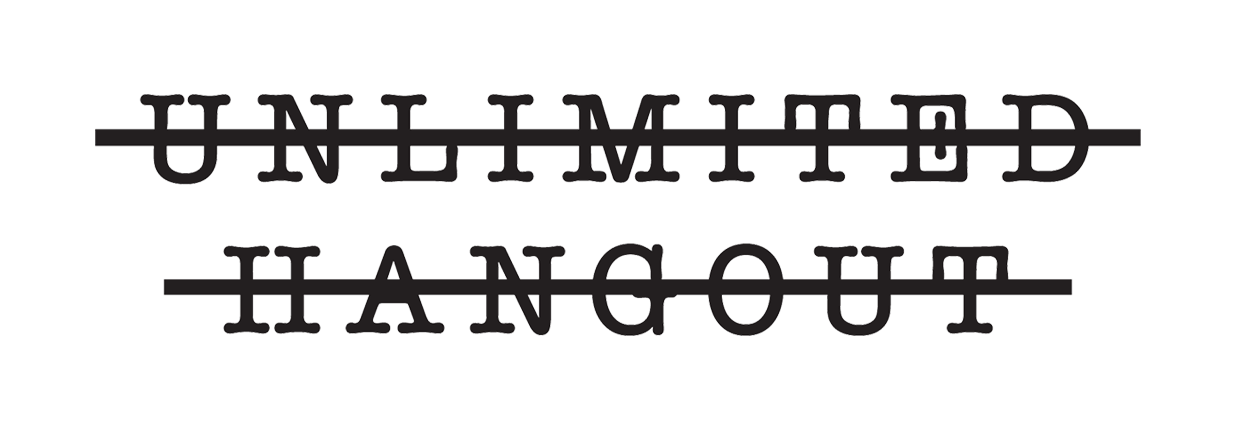
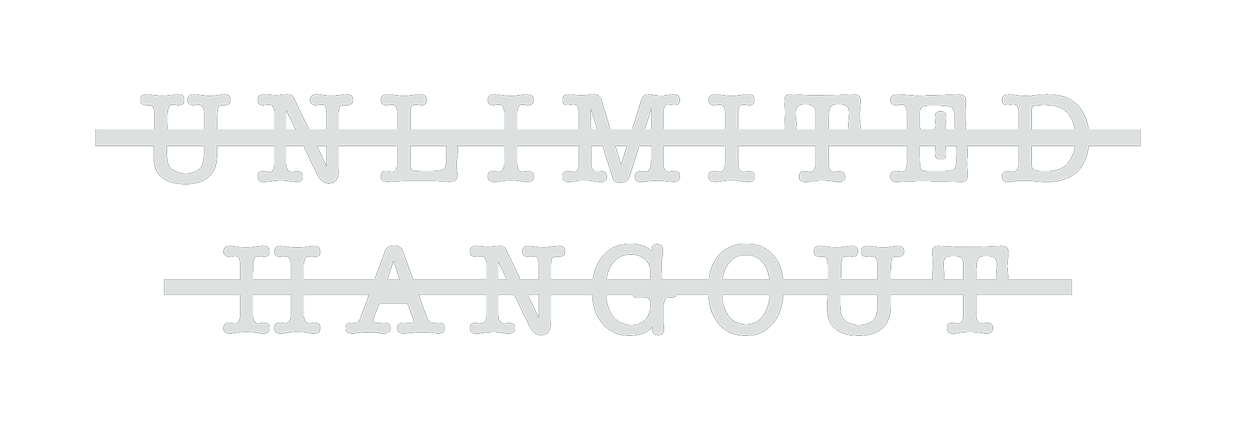










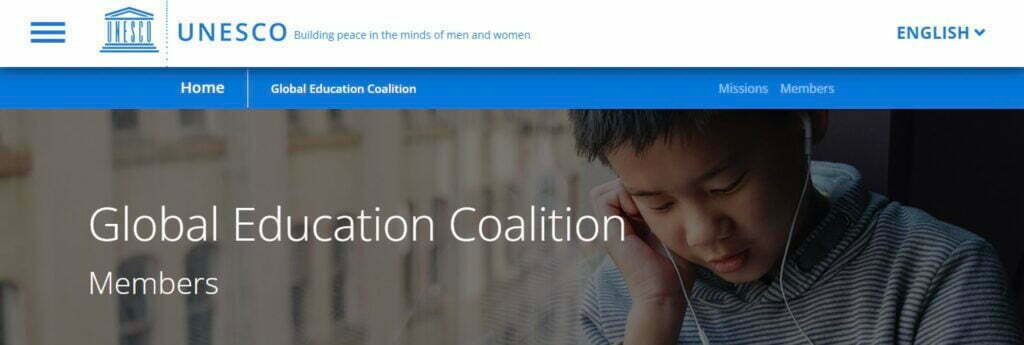
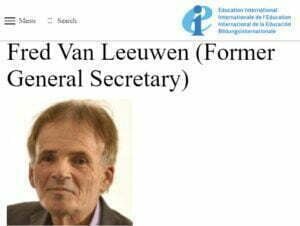
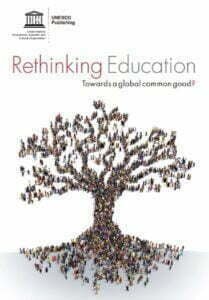




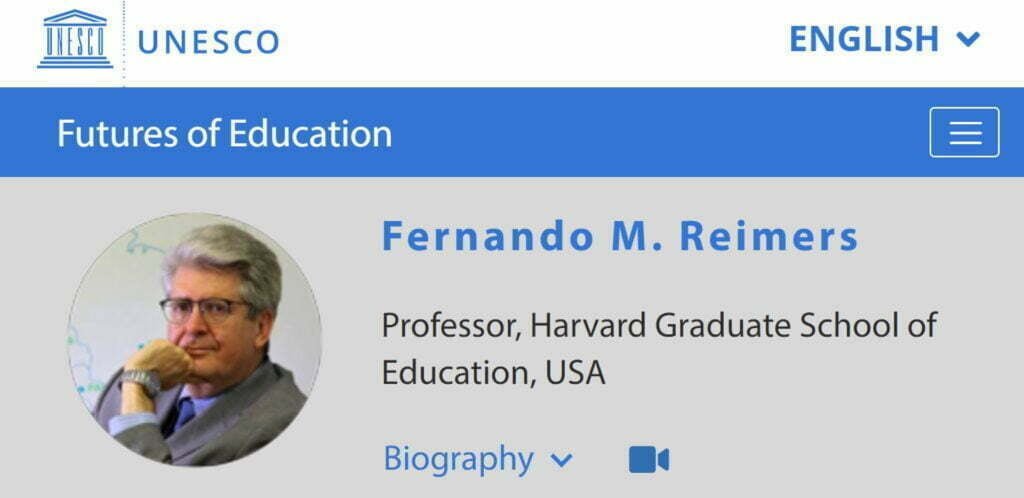
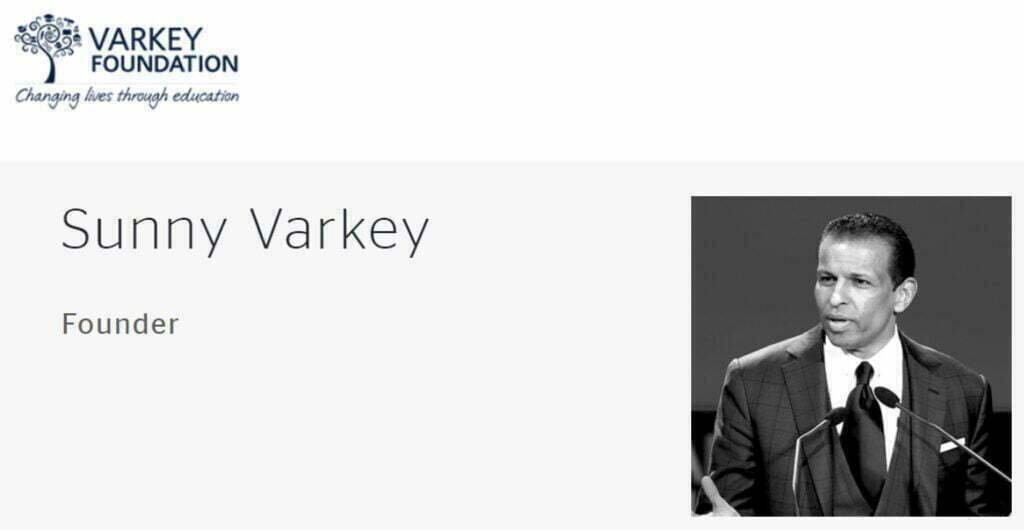





Not surprised. Berit Kjos and crossroad.to documented this stuff for years and years warning where it would lead. Many got on schoolboards thinking they could do something about it, only to find they were rubber stamp & not truly representative or having the power to do anything after the federal centralization of education & the corporate monopoly took publishing. Then Gates took digital.
–
Related to this, and the push to vaccinate children, which I believe has a multi-pronged purpose, & that avoiding liability is low on the totem pole of goals. (If they can achieve this, then representative law is totally out the window. Even more so than the global central bank & corporate manipulation going on now.)
What do people make of Professor Lieber’s patents in nanobiotech & tie-in’s to Wuhan, & what they represent when considered alongside the ‘vaccine’ push, & what Synchron just claimed to have achieved in Australia with the brain implant using the body’s own bio-sensors in the vasculature, and supposedly allowing a man to send a Tweet by thought & brain interface technology? https://www.sciencetimes.com/articles/35276/20211229/paralyzed-man-tweets-mind-through-microchip-brain-implant.htm
Excellent article, Uch appreciated. Ties in with following, by Cynthia Chung, of Rising Tide Foundation:
https://cynthiachung.substack.com/p/huxleys-ultimate-revolution-the-battle
Although there might be a push towards digital identities in the UNESCO paper “Rethinking Education: Toward a Global Common Good?,” there is also a whole chapter on humanism which accentuates the need for “reaffirming the need for a humanistic approach”, specifically opposed to postmodern post- and transhumanistic visions of education and society.
I know this isn’t the main issue, but one must take care to underline nuances when it comes to these programmatic papers. There might as well be resistance to posthumanistic digitalization of identity within UNESCO itself.
Of course that there is and will be resistance to post humanistic digitalization of identity within UNESCO itself, even though, it seams to me that it’s just unbelievable not to connect the dots, especially after these 2 years of zombie circus with ..rona, but there are people that are under mass formation hypnosis, believing everything institutions say, “because they know better, they have diplomas, ok you have them too, but they know better, you are stupid” mantra.
Diploma is nothing cause everybody can have it/buy it, it’s not the proof of intelligence, but it can be proof of ambition, proof of capability to absorb what you’ve been ordered to absorb – which is not the same as good processing of informations….besides, Mengele had diplomas (MD PhD) and was greatly respected.
On the other hand, narrative of “opposing the postmodern post- and transhumanistic visions of education and society” falls just beautiful with with UNESCO, cause, you’ll never be able to say “a-ha, you are sinister”…the same thing is with Foucee, Gates, Schwab and the others.
They literally tell you everything strait to the face, but there is always that ambiguity and double meaning, that nobody can claim 100%, that this is what they really mean when they say it.
Do you know that Kinsey institute (Rockefeller’s pedophiles – worshipers of Aleister Crowley) have special counseling status at the UN ECOSOC, FOR EDUCATION?
Well, yes they have, and that will be one of the future legislation changes, decriminalization of pedophilia, and making it legal.
If parents don’t wake up, their children will be served to these sick f*cks at a buffet.
I’m a full-time professor at Austin TX’s community college and I’ve been having a very, very bad feeling about remaining in my position there for the past several months. From trying to acclimatize us to keeping a QR code “health” app on our phones (not forced at this point) to not being able to log into online college sites without getting a password on your phone (another move to get people to keep their smart phones on their person at all times), to introducing “Quality Matters” which is an bureaucratic operation that will force us to follow their directives for delivering course content in online courses (can’t teach online without completely overhauling online class sites according to bureaucratic dictates but have to teach at least some courses online), to the fact that departments are bursting with new “assistant chairs” (multiple assistant chairs in a department) and new assistant dean positions with both assistant chairs and assistant deans looking like there is no academic reason for them (just shoveling more and more money into administration and co-opting young professors into the bureaucracy) to the grotesquely infantile “diversity, equity, and inclusion” trainings (how I hate that word “training” used as a substitute for “re-education”) and more. Because I started teaching at this particular institution at an age which means I won’t get my full retirement until I’m 80 years old (and I doubt there will be any retirement by that time anyway), it’s not like I’ll stay on the for the 30 years anyway. If I take early retirement now, I’ll get a monthly pittance… but I’m thinking a monthly pittance is better than remaining under the circumstances. This article is chock full of detailed information which more than suggests that my sense of dread was completely on point. I have to build up my courage to give up that well paid job and maybe start buying lottery tickets – ha ha. I guess it will be impossible to stay out of the clutches of the “brave new world,” but I’d like to try to do for as long as possible. I used to think 62 was old but now I’m finding out that it isn’t. With a potential 30 years left of my life, I dread the future.